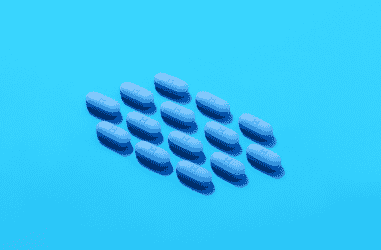What Are the Long-Term Side Effects of Truvada?

Truvada is a medication the FDA has approved for the treatment of HIV/AIDS. It’s taken once a day and helps prevent the virus from replicating in your body. However, this medication has been associated with some health challenges.
While Truvada is safe for most people, it can cause side effects for some. It has been known to cause some mild, short-lived side effects and some long-term side effects, which people are concerned about. Some users have recently filed lawsuits against the manufacturer due to damages caused by Truvada use. Most victims reported long-term side effects such as kidney problems, liver problems, and bone loss. If you or a loved one are experiencing negative side-effects of Truvada, contact an experienced Truvada lawsuit lawyer today.
Truvada Side Effects: What You Should Know
When you take Truvada, your body is exposed to the drug tenofovir. This medication is a type of antiviral that is FDA approved to treat HIV. There are several different types of PrEP medications, but the most widely used is Truvada (tenofovir disoproxil fumarate), which is taken once a day as a pill.
Mounting evidence from studies shows that the drug PrEP is most effective for those who took it daily rather than on an “as-needed” basis.
Some side effects of Truvada may start within a few weeks of taking the medication, and can usually be quite tolerable. Others may come on later during medication. Still, others can be serious and long-term and may take a toll on the patient, leading to serious injuries and even death.
Truvada causes some side effects due to its Tenofovir ingredient, which contains creatinine and transaminases — enzymes related to the liver and kidney. High levels of tenofovir have been linked with liver and kidney damage as well as reduced bone mineral density. This is because taking PrEP daily keeps the medicine from being broken down in the liver and could be toxic to the body.
You should inform your healthcare provider of your medical history before taking Truvada. For example, your doctor should know if:
- You have an existing medical condition
- You’re pregnant or intending to become pregnant
- You’re breastfeeding
- You’re on any medication
- You have any health challenges
How Long Do Truvada Side Effects Last?
The length of time that Truvada side effects last is difficult to predict since there are so many variables. However, the mild side effects of the drug tend to last one to two weeks.
Some people may find that their Truvada side effects last longer than two weeks, especially for long-term side effects like liver damage. Even after stopping Truvada, some people have had side effects for a long time. These side effects can persist for up to a year or more. If you have any concerns about your health, call your doctor right away.
What Are the Likely Side Effects?
The most common side effects of Truvada include headache, nausea, vomiting, rash, and changes in skin color. Mild headache is the most common side effect of Truvada and may only last a few days. Nausea and vomiting are also common with Truvada, likely caused by the medicine’s antiviral activity.
A rash may also occur with Truvada and is usually mild to moderate in severity. The rash can appear on your face, arms, or anywhere you’ve been exposed to sun or sweat (such as your chest). The rash may also be accompanied by itching, swelling, or blistering.
Skin changes related to HIV may occur during treatment with Truvada. These include skin darkening (hyperpigmentation), which occurs in some people who use certain medicines or have certain conditions.
Because of Truvada’s potential to interact with other medicines (including many over-the-counter medications), you should tell your doctor about all the medications you take.
Can Truvada Cause Hair Loss?
Maybe. The question of whether Truvada causes hair loss is controversial, but several studies have found links between the two.
A recent phase IV clinical study found that short-term use of HIV drugs like Truvada may increase the risk of hair loss by a very small percentage. There’s also evidence that long-term use increases this risk, especially for those who have taken the drug for over 10 years.
As several elements affect hair development, it’s not clearly understood how HIV medication causes hair loss. In contrast, medication-induced alopecia is not uncommon, and it generally develops when a specific medicine interferes with the regular cycle of scalp hair development.
However, not everyone agrees with these findings. Some studies have found no link between HIV medications and hair loss in people who take them for long periods.
Does Truvada Cause Diabetes?
Yes, Truvada can cause certain types of diabetes.
Although diabetes was not listed as a negative effect related to Truvada during clinical trial studies, its use has been linked to a disease known as nephrogenic diabetic insipidus (NDI) in certain patients. The kidneys fail to function at their optimal level, causing excessive urination, which might lead to dehydration.
Those suffering from NDI may experience the following symptoms:
- Exhaustion
- Headache
- Dizziness when sitting or standing up
- Weight loss
If you’re worried about NDI or are experiencing any of its symptoms after using Truvada, talk to your doctor. He or she may want you to stop using Truvada and switch to another drug.
Truvada Side Effects
The most common side effects of Truvada are mild to moderate headaches, diarrhea, nausea, and stomach pain. One of the most serious side effects is a drop in bone density that can lead to fractures.
Other possible side effects include:
Kidney Problems
The most common side effects of Truvada are kidney problems, including kidney stones, kidney infections, and reduced kidney function.
Kidneys are tubing that filter waste out of the blood and also remove extra fluid and other substances from your body. If you take a drug that inhibits the action of your kidneys and causes too much fluid to be removed from your body, you may develop kidney problems.
Truvada increases the risk of kidney problems in people with kidney disease or who have had a kidney transplant. Symptoms include swelling of the feet or ankles (edema), sudden weight gain, dark-colored urine, and fever.
Liver Problems
People taking Truvada for PrEP may experience liver problems such as jaundice (yellowing of the skin and eyes) and dark urine. Truvada increases the risk of liver problems in people who drink alcohol or take other drugs that affect the liver (such as acetaminophen). Liver damage can lead to scarring of the liver tissue, which can cause liver failure and even death.
Bone Density Loss
Truvada use may cause bone density loss in women through a reduction in bone mineral density (BMD). While this effect appears to reverse when you stop using Truvada, it’s still important to discuss your bone health with your doctor regularly to monitor your BMD.
Serious Side Effects May Also Include:
The immune system is a collection of cells, tissues, and organs that protect the body from disease. It recognizes foreign entities like bacteria or viruses and destroys them before they can harm the body. Truvada helps prevent HIV infection by blocking the virus from entering your body’s cells. However, it also stimulates your immune system to fight off infections. This may cause some side effects such as Immune Reconstitution Syndrome.
Immune Reconstitution Syndrome (IRS)
IRS is one of the most common side effects of PrEP. A person taking PrEP may experience symptoms such as fever, fatigue, headache, and nausea after taking Truvada. This is because your immune system starts to recognize exposure to HIV in its early stages of infection. This leads to an overreaction in order to remove all traces of infected cells from your body, leading to symptoms.
Lactic Acidosis
Lactic acidosis happens when the body doesn’t get enough oxygen and the buildup of lactic acid can lead to serious complications, including heart arrhythmias, seizures, and coma. People who take Truvada are at an increased risk of developing lactic acidosis. Truvada inhibits the function of liver enzymes that help break down lactate and other substances that might build up too quickly in the body if there aren’t enough enzymes to deal with them.
The risk of lactic acidosis increases as the dose increases or when Truvada is combined with other drugs that can also increase blood levels of lactic acid, such as anticonvulsants and thyroid medicines.
If you experience any of these symptoms while using Truvada, seek medical attention:
- Severe muscle pain
- Fever
- Rapid heartbeat
- Swelling in your face, arms, or legs
- Nausea and vomiting
- Excessive fatigue
Long-Term Side Effects
Some Truvada users have experienced long-term effects. Some require immediate medical attention while some are mild and fade after a short time.
Side Effects Requiring Immediate Medical Attention
- Kidney Problems: Truvada can make your kidneys work overtime, which can lead to kidney problems. If you have low potassium levels or kidney stones, you may be at risk for developing kidney disease if you take Truvada long-term.
- Bone Problems: Bone problems are common side effects of Truvada, and may include pain, fractures, or even tumors in people who have taken Truvada for years. The CDC recommends talking to a doctor if you have any bone problems while taking Truvada.
- Lactic Acidosis: Lactic acidosis occurs when the liver can’t process lactate properly, leading to high levels of lactic acid in the blood. Lactic acidosis can cause symptoms like fatigue, weakness, muscle cramps, and nausea.
- Liver Problems: These could include cirrhosis of the liver (a scarring of the liver) among other problems. Patients who develop these conditions should call their healthcare provider.
Side Effects Not Requiring Immediate Medical Attention
Long-term Truvada side effects aren’t always life-threatening, but they could still benefit from medical attention.
These include:
- Headaches
- Abdominal pain
- Weight loss or gain
- Anxiety
- Back pain
- Difficulty in moving
- Heartburn
- Joint pain or swelling
- Sweating
- Trouble sleeping
Mild Side Effects of Truvada
The most common mild side effects of PrEP are headache, muscle pain, and abdominal cramping (stomach pain). These side effects typically occur the first few weeks after starting PrEP.
You may have other mild side effects from Truvada as well:
- Fatigue: Fatigue could be caused by changes in your sleep, mood, or energy level, or by the medicine, the HIV infection, or something else. You may get more tired if you take drugs to prevent a future infection (protease inhibitors) or other medicines causing fatigue.
- Heartburn: This is a common side effect of PrEP, but it’s usually not serious. You should not stop taking PrEP because of heartburn unless directed to do so by your doctor.
- Mild Diarrhea: This is another common side effect and can last a few weeks after starting PrEP. Your health care provider can estimate how long it could last and what to do if it doesn’t go away.
- Nausea: This can happen the first time you take Truvada, when you increase your dose, or if you have a significant change in your health.
- Dizziness: This feeling is more common if you have low blood pressure and if you take Truvada shortly before going to bed. If this happens, sit down until the symptoms pass and completely disappear.
- Low Mood: Truvada alters your immune system in ways that aren’t entirely understood yet. You may feel depressed or anxious due to this change in your body chemistry, but it’s usually temporary.
Consult an Attorney for Your Truvada Case
If you’ve suffered side effects from Truvada, a lawyer can determine if you’re eligible for financial compensation from the drug manufacturer. Lawyers within our network can help you discover if a Truvada lawsuit is right for you and how to protect your legal rights.
Fill out our contact form to schedule your confidential Truvada lawsuit review.
